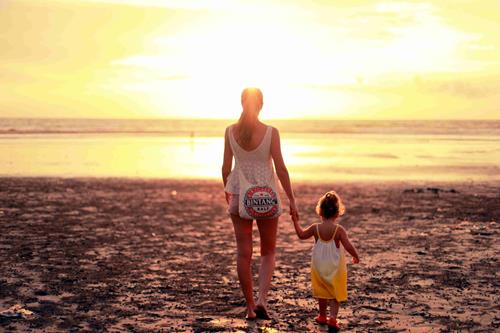Photo credit – Chema Photo
When you’ve got kids there’s a LOT to do: keep them clean and healthy, keep them on the straight and narrow and preserve your own sanity. The lure of life admin and paperwork may be very easy to resist compared to the new box set on Netflix when 9pm comes around and all is quiet in the house.
The good news is that if you’re a parent of young children then, statistically, you’re likely to have a good few years ahead of you. But: it’s always worth having a will in place “just in case”. The pain of making a will lasts about fifteen minutes to half an hour. The peace of mind that goes with it stays with you for years.
The main five reasons for parents of young families to make a will are:
1. Make sure your children know you thought about them.
When a child loses a parent it leaves a lot of questions. One place that a child can see that their parent had them in their thoughts is in a will. Even if you’re leaving everything to your partner or spouse you will still likely mention children in the will (e.g. who you would leave your estate to if your partner/ spouse died before you).
Often there is something special that you want to go straight to a particular child: grandparents’ war medals or a wedding ring. You can give any item you own like this and you will ensure that an heirloom is passed as you want it.
2. Make sure everything is dealt with fairly.
If you don’t make a will your estate will be dealt with in accordance with the “rules of intestacy”. These are blind to what may have happened before. Your whole estate will go to spouse and children (or parents/ siblings/ other family if none) and will be blind to any special wishes you may have had. Sometimes, for example, one child may have inherited something directly from a grandparent, but the other (often the younger) did not.
By writing a will you can make right any problems like this from the past that could breed resentment in the future. When you do this you can also leave a note with the will explaining exactly why you’re doing what you’re doing so that no child will harbour jealousies into the future. Without a will you could not address these potential future issues.
3. Deal with complicated family circumstances.
Let’s face it: for a lot of us life hasn’t always been “vanilla” for us or our family. Complications can arise following divorce and remarriage, step siblings, or old fashioned family disputes.
Picture this: you marry a partner with children and have more children together. Without a will your estate would likely pass to your new spouse, then be split equally between all of their children. Perhaps this would be fair, but perhaps, if you brought more wealth to the partnership, or if your spouse’s other children stand to inherit more in the future (from their other biological parent) then the intestacy rules would disadvantage your own child.
Writing a will would avoid the upset and resentment that this could cause. In June of 2019 a tragic example of the dangers of not having a will came to light in the English courts.
4. Provide gifts that will go to your children when they reach a certain age;
If you die and your children inherit (which can happen if you are divorced or don’t have a will) then yourchildren will inherit as soon as they reach 18. Some 18 year olds are very responsible but others aren’t: and who’s to say which yours will be without your stabilising influence.
By making a will you can specify the age that you want your children to inherit. 21, 25 or even 30. The better we understand the development of the human brain, the more we realise that true “adulthood” (when the brain is fully developed and we can control our impulses) might not start until the late 20s or early 30s.
A pause of a few years could be the difference between your worldly wealth being used by your child on an extravagant and expensive extended adolescence or building a stable home and future.
A will is the best way to increase the likelihood of the second outcome.
5. Remember other family members who might otherwise miss out.
Looking away from your children for a second: there are lots of others in your life. You may wish to remember your parents in your will, or a dear friend or perhaps a charity that is close to your heart. Your will is your final chance to remember those you love.
Gifts in wills are activated by your death but are inspired by your fondness, affection and love whilst you are alive.


